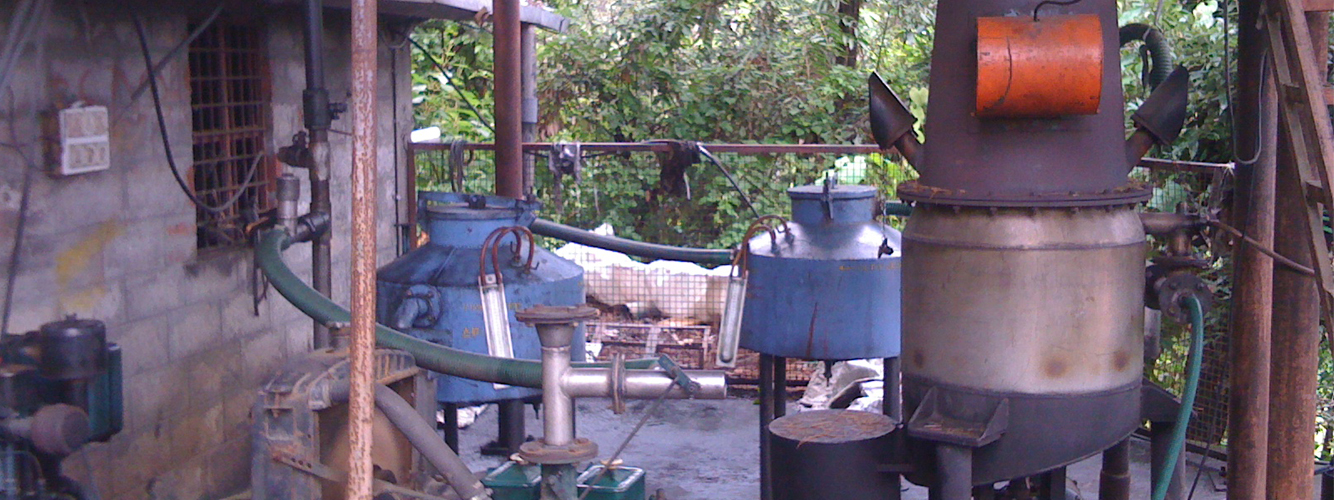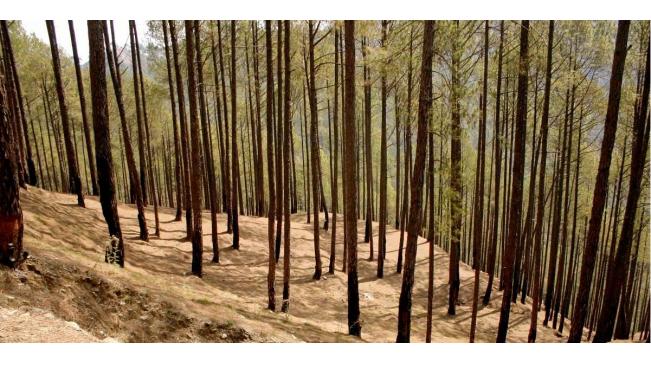 Forest fires are an unavoidable hazard in the lower foothills of the Himalayas in the state of Uttarakhand and every year between the months of April and June one is likely to come across the terrifying orange blaze that burns down miles of evergreen pine forests. Such recurring fires merely don’t char the forest but also wreck the entire ecosystem of the wilderness on which thousands of villages on the margins of the forest, depend for their livelihood. The most devastating wildfire occurred in 1999 when over 5,000 square kilometres or nearly twice the size of the state of Goa went up in smoke causing a loss of over Rs. 600 crores of forest wealth not to speak of the livelihoods of communities living on the margins of the forest which was not computed.
Forest fires are an unavoidable hazard in the lower foothills of the Himalayas in the state of Uttarakhand and every year between the months of April and June one is likely to come across the terrifying orange blaze that burns down miles of evergreen pine forests. Such recurring fires merely don’t char the forest but also wreck the entire ecosystem of the wilderness on which thousands of villages on the margins of the forest, depend for their livelihood. The most devastating wildfire occurred in 1999 when over 5,000 square kilometres or nearly twice the size of the state of Goa went up in smoke causing a loss of over Rs. 600 crores of forest wealth not to speak of the livelihoods of communities living on the margins of the forest which was not computed.
It has been found that the floor of the pine forest is always covered by a thick carpet of fallen pine leaves better known as ‘pine needles’ because they resemble needles more than leaves. These pine needles remain on the forest floor and dry up to become a combustible source of fire; all that is needed is just a spark to turn this thick carpet of pine needles into a raging wild fire devastating the entire forest environment. This spark could come from anywhere e.g. lightening to human oversight or even mischief. The sad truth is that it recurs every year during the driest months of April to June when huge tracts of pine forests go up in smoke.
Avani Bio-Energy, a social enterprise, which has been active in researching the forest ecology of this region, came up with a unique innovation – a gasifier based micro power plant that absorbs the very pine needles that are a cause of serious concern all along the pine covered lower Himalayan ranges. At a cost of nearly Rs. 5 lakhs, the organization set up a 9 Kva technology demonstrator gasifier plant at its center in Pithoragarh which uses pine needles as input material. The plant uses 1.5 Kva of this power for its own operation while the balance 7.5 Kva of power is made available to the local community.
Now Avani is in the process of setting up a 120 Kva pine needle driven gasifier power plant in village Chachret, in the district of Pithoragarh in Uttarakhand. Upon completion, this micro gasifier plant will provide around 100 watts electric power to each of the 100 odd families in Chachret in addition to 10 other villages in the vicinity. An interesting by product of this plant will be charcoal briquettes, which is an excellent kitchen fuel that the villagers can buy with cash payment or by supplying a certain quantity of pine needles. At any given point of time the plant would need at 100 – 150 people to supply the input bio-mass (pine needles) which creates an excellent year round employment opportunity for the local population.
The success story of Avani Bio-Energy has travelled far and wide as much for the brilliant pioneering work of its founder Rajnish Jain as for the fact that it has created this wonderful sustainable opportunity in one of the world’s ecological hotspots, the lower Himalayan range. Acumen Fund, the non-profit venture capitalist, has already funded Avani with USD 250,000 while Mahindra and Mahindra has provided a grant of Rs. 24 lakhs to help the fledgling enterprise carry the good work, forward. Jain is already eyeing a profit margin of 17% for Avani which augurs well for the local stakeholders as Avani aims for maximizing local equity to make it an inalienable part of people’s lives in this region.
One amazing truth about renewable energy generated from biomass is that almost every ingenious option that has evolved over the years is a wonderful manifestation of providing a healing touch to nature. These options don’t just provide the much needed energy to isolated and impoverished communities in far flung hamlets but also help revive and resuscitate something that Nature had lost through senseless commercial exploitation or even in the perfectly natural but hazardous instance of the source of forest fires in this case.


